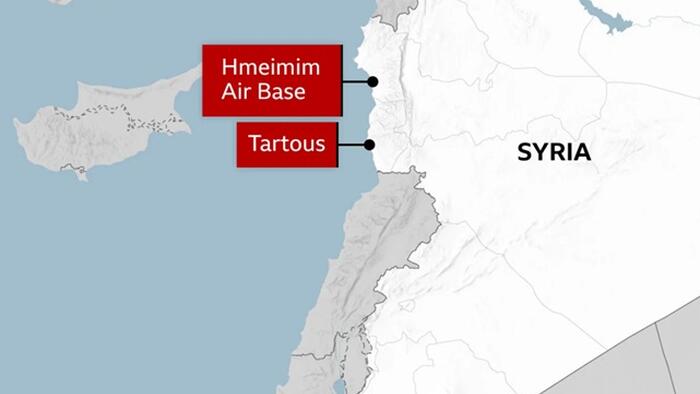


Since the fall of longtime Syrian leader Bashar al-Assad in December of last year, which has since drastically changed Syria into a hardline Sunni state no longer aligned with Tehran or Moscow, Russia's military began slowly moving its military assets from the region, essentially packing up its bases.
Moscow has been seeking to negotiate with the new regime regime in Damascus to keep its two historic bases on the coast, especially the naval base at Tartus, which was for decades Russia's only deep-water Mediterranean naval port.
Behind the scenes negotiations have seem stalled for months, with little news, however, on Monday Russian Foreign Minister Sergei Lavrov weighed in after being silent on the issue. Khmeimim Air Base has lately played host to thousands of Alawite and Christian refugees being persecuted by Sunni radicals, including by government Hayat Tahrir al-Sham (HTS) troops.
Lavrov made clear that the Sharaa government is looking favorably on allowing Russia to keep its military presence on the coast, but under the guise of a more humanitarian and logistics purpose.
"Syria would like to maintain Russian military bases in the country, but may repurpose them for different tasks amid new realities, Russian Foreign Minister Sergey Lavrov said during a meeting with journalists from Arab countries," according to TASS.
"The Syrian side is interested in maintaining our military bases there. As our president has repeatedly said, we will be guided by Syria’s interests in this matter," he emphasized. "It is clear that under the new circumstances, these bases may play a different role, not just as military outposts," Lavrov added.
"In particular, given the need to establish humanitarian flows to Africa, these may be sea and air bases serving as humanitarian hubs for sending humanitarian cargoes there, including to the Sahara-Sahel zone and other countries in need," Lavrov specified.
Damascus and its new rulers may have come to the practical conclusion that it's better for Russia to have a foothold in the region, at a moment Israel has continued to bomb Syrian cities and military sites with impunity.
If nothing else, a superpower's military being on the ground, even if just on the coast, could prove diplomatically beneficial to Syria - at a moment it has no anti-air defenses to speak of.
Russia and Turkey could be seen as playing a balancing act in the region in the face of Israeli aggression. Russia still has its own powerful anti-air defenses which protect its coastal assets, also near Latakia.
